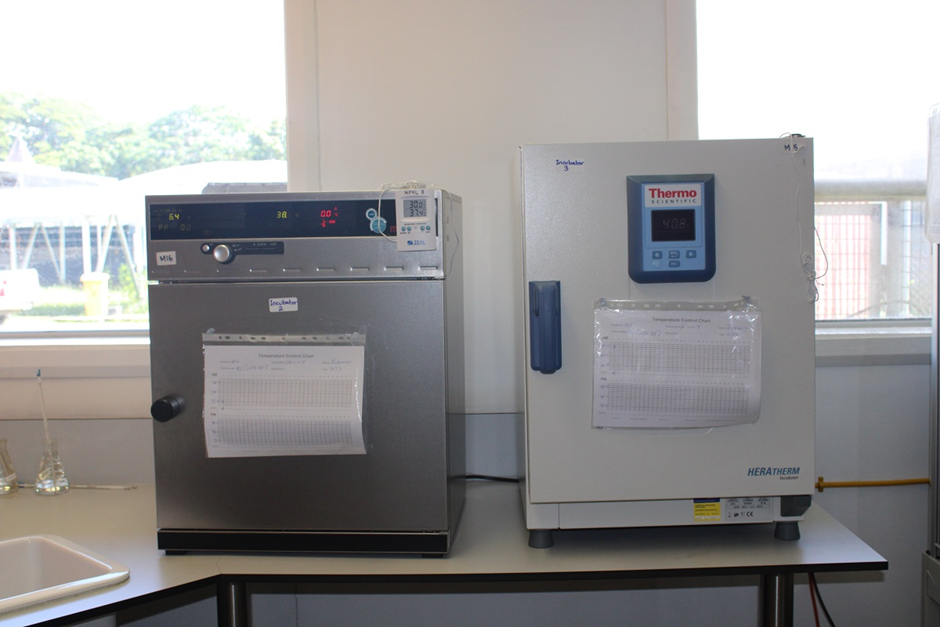THE National Health Public Laboratory has been the ongoing focus of the Solomon Islands Government to facilitate the increase in export to markets overseas.
As part of the process to internationally accredit the National Laboratory, two experts from the New Zealand-based Total Calibration Ltd were in the country last week to conduct calibration work on equipment at the microbiology laboratory. Calibration is the process of configuring instruments to provide a result for a sample within an acceptable range.
The EIF Solomon Islands Enhanced Capacity for Agriculture Trade (ECAT) project under the Ministry of Foreign Affairs and External Trade has been assisting the NHPL in meeting some of the processes to gaining international accreditation.

Oliver Lukos from the National Health Public Laboratory said the laboratory plays an important role in market access as it offers safety and quality tests for food and water.
He said the laboratory is important to assure our trading partners of the quality of our products and whether they are regulated to the approved international standards.
The two calibration experts from New Zealand have been busy standardizing equipment at the microbiology laboratory to ensure it reaches the globally accepted ISO/IEC (International Standard Organization) 17025 – the standard for which most labs must hold accreditation in order to be deemed technically competent.
Meeting such a standard is crucial as most regulatory authorities will not accept test or calibration results from a lab that is not accredited to that standard.
“If we reach that- ISO 17025, what we do here can be accepted in Australia, New Zealand or wherever we want to export our products to without the need for further testing, which in turn simplifies immigration process and boost international trade,” Mr Lukos reemphasized.
He further stressed that work on calibrating equipment must be done by an independent and certified body from outside.
“If you do not calibrate your equipment you would not know how well your equipment is performing”.
He thanked the EIF SI CAT project for assisting in meeting the process and requirements towards gaining accreditation.
After calibration, four audits will be conducted on the laboratory before it is fully given the accreditation stamp. The audits will also be carried out by independent international bodies who will assess the laboratory to ensure it meets International standards.
This is not the first time that the EIF has assisted the NPHL. EIF also funded the new office building for NPHL and also has procured numerous lab equipment’s for the lab.
The EIF is multi-donor programme which supports the Least Developed Countries (LDCs) in their effort of promoting economic growth and sustainable development by addressing their trade and trade-related constrains in order to build their capacity to trade and take advantage of global trade.
—MFAET PRESS RELEASE